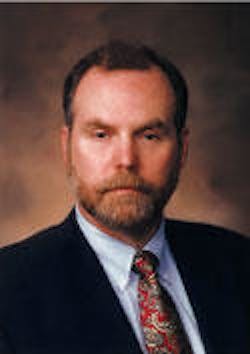States' rights issue still entangles national telecom policy
Pending federal-court decisions on municipal entry into telecom markets will affect several states and determine how quickly their rural areas develop fiber infrastructure.
BY STEPHEN N. BROWN
When the Supreme Court decided AT&T Corp. v. Iowa Utilities Board in 1999, a landmark case in which a state regulatory agency asserted that the FCC lacked authority to set intrastate telecom policy, the Court affirmed the supremacy of federal law: "[T]he question in this case is not whether the Federal Government has taken the regulation of local telecommunications competition away from the States. With regard to matters addressed by the 1996 [Telecom] Act, it unquestionably has." Some states disagree; for example, Texas and Virginia ban municipalities from offering telecom services, despite the language in Telecommunications Act of 1996, Section 253(a): "No State...may prohibit or have the effect of prohibiting the ability of any entity to provide any interstate or intrastate telecommunications service." Other states hinder cities by making them conform to rules that do not apply to the private sector, but no state will ever again prevent municipalities from offering telecom services if a federal court's recent decision is upheld.
Virginia's ban has been challenged by Bristol, VA; in a case argued to the Virginia Western District of the U.S. Fourth Circuit Court, Bristol asserted that the phrase "any entity" applies to local governments and further claimed that a city "may bring a claim in a federal court against the state when the claim is based on federal law that is...controlling and where the [state's] political subdivision [the city] claims to be a beneficiary of that federal law." The state countered that cities are political subdivisions of states and have no "federally protected rights" and that overturning Virginia's law would violate the 10th Amendment of the U.S. Constitution, where all powers not delegated to the federal government flow to the states.
Bristol's suit was supported by an amicicuriae ("friend of the court") brief by the Blue Ridge Power Agency, composed of several small towns, which held that "municipalities have [the right] to seek enforcement of federal rights...there are constitutional constraints on states' regulation of local government." Another "friend of the court" filing was made by U.S. Rep. Richard Boucher, (D-VA), Bristol's congressman. Boucher, a member of the House Subcommittee on Telecommunications and the Internet, advised the Court on the Congressional intent of Section 253(a): "The words 'any entity' should be given their ordinary meaning, which certainly includes a governmental entity...this Court should honor the intention of Congress and allow local governments to offer commercial [telecom] services."
The city received a favorable decision in District Court, whose judgment was: "the words 'any entity' in the federal statute plainly include a municipality. The issue is not whether allowing local government to compete with commercial providers is good public policy... that decision has been made by Congress, and under the Commerce Clause of the Constitution, its decision trumps any conflicting state law." The District Court also repudiated a decision of the U.S. Circuit Court of the District of Columbia, which in 1999 had ruled against Abilene, TX, when it challenged that state's ban on municipal entry. The District Court said: "The D.C. Circuit rationalized its narrow reading of the term 'any' by explaining it could not 'hear' [the congressional] 'tone of voice'... Courts are always called on to interpret written words rather than spoken...the [inability] to hear...tonal emphasis has never been an obstacle to statutory interpretation." Perhaps to minimize the chance that its decision would be overturned, the District Court also anchored its far-reaching decision in the Constitution's supremacy clause: "...the Virginia statute is unenforceable...[according to Article VI of the Constitution] the laws of the United States shall be the supreme law of the land...the laws of any state...notwithstanding."
The Virginia Telecommunications Industry immediately petitioned the Fourth Circuit's Court of Appeals to review the District Court's decision. The case may eventually be heard by the Supreme Court, which in an other case ruled that the term " 'any' has an expansive meaning," unless modified by specific language. The odds are low for a successful appeal.
The Bristol case is important because small towns play the role of "early adopter," often being the first organization to plan and develop fiber networks in rural areas. The Blue Ridge group wrote: "[E]ach of the municipal utilities is committed to furthering the economic development of its area. Just as they filled the gap in providing electricity...they may be the best choice to provide advanced telecommunications ...where private companies have [not]." The group then emphasized how the different towns could use fiber to form a broader market: "In an era when regional solutions are emphasized as best, the Bristol project could link with [other] fiber network[s] to create an electronic community more than 20 miles long...where the private sector fails to bring advanced communications to towns...it is...necessary for municipalities to expand their high-speed networks to include... services for all their citizens." Rep. Boucher supports this activity, saying "the ability of local governments to establish information authorities to deploy fiber-optic rings...where these services are not provided by [the] private sector...should clearly be sanctioned by law."
Boucher and the Blue Ridge group imply that towns should provide high-speed services only when the private sector does not. That is an irrelevant concern because as the District Court already noted, municipalities have the right to offer telecom services even if they compete with the private sector, regardless of whether the setting is rural or urban. For example, nothing stops the Los Angeles Department of Water and Power from offering advanced telecom services in the Los Angeles metropolitan area, other than policy set by the city council.
However, rural small towns have sufficient evidence to support their claim that if they do not bring fiber infrastructure to their communities, no one else will. According to Advanced Telecommunications in America, a report issued last year by the National Telecommunications & Information Administration, cities with populations exceeding 250,000 are the prime targets for cable and phone companies offering so-called "broadband" services. Less than 20% of towns with populations between 25,000 and 50,000 people have cable-modem or DSL service, technologies that only remotely resemble a true broadband service. Only 5% of towns with populations between 10,000 and 25,000 are served by these technologies, and the percentage figure approaches zero for even smaller towns. Approximately 30% of the American population lives in small towns and rural areas.
These statistics imply that a ban on local-government provisioning of telecom services, or other measures that interfere with such provisioning, do more harm than good. States that isolate these communities for discriminatory treatment diminish the standard of living in rural areas. There is a clear need for municipalities to provide fiber infrastructure and telecom services where the private sector is not doing or cannot do the job. Now it is up to the courts to let the towns of America serve their citizens.Stephen N. Brown writes on public policy in telecommunications. He can be contacted by e-mail at [email protected] or telephone: (615) 399-1239.

